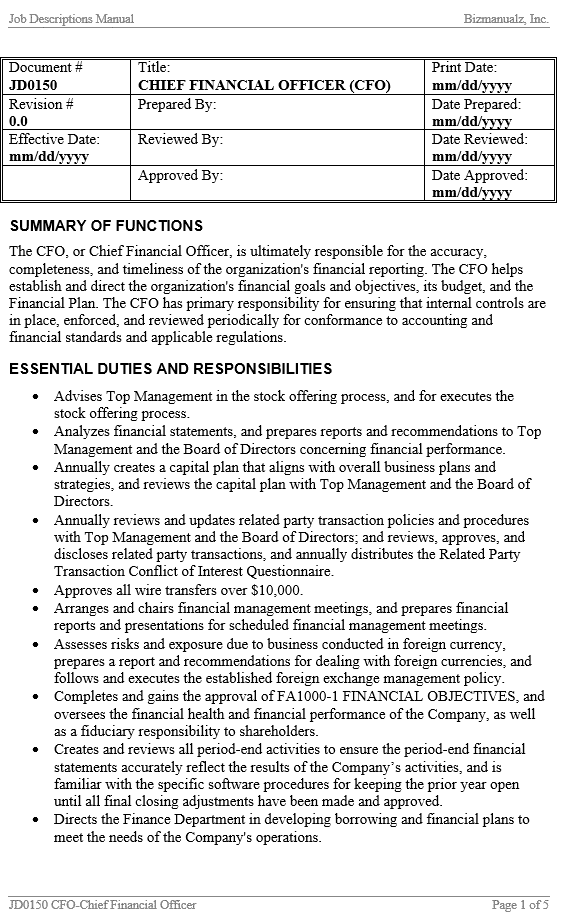Write Job Descriptions with Reasonable Accommodation

Writing Job Descriptions That Provide Reasonable Accommodation
- Start with an analysis of the job that determines the essential functions.
- Identify how a disability may affect the essential functions of the job.
- Identify possible accommodations needed to overcome any limitations.
- Determine the effectiveness and feasibility of the proposed accommodation.
- Select the appropriate accommodation that satisfies the employee’s preference.
Americans with Disabilities Act (ADA)
The Americans with Disabilities Act gives civil rights protections to individuals with disabilities similar to those provided to individuals on the basis of race, color, sex, national origin, age, and religion. It guarantees equal opportunity for individuals with disabilities in public accommodations, employment, transportation, State and local government services, and telecommunications. The title I employment provisions apply to private employers with 15 or more employees, State and local governments, employment agencies, and labor unions.
ADA Prohibits Discrimination
The ADA prohibits discrimination in all employment practices, including job application procedures, hiring, firing, advancement, compensation, training, and other terms, conditions, and privileges of employment. It applies to recruitment, advertising, tenure, layoff, leave, fringe benefits, and all other employment-related activities. The ADA does not require employers to develop or maintain job descriptions.
Well Written Job Descriptions

However, a well written job description that is prepared before advertising or interviewing applicants for a job will be considered as evidence along with other relevant factors and can help defend against charges of discrimination. If an employer uses job descriptions, they should be reviewed to make sure they accurately reflect the actual functions of a job.
A well-written job description can play an essential role in defending against charges that someone with a disability was unlawfully denied employment or was unlawfully refused an accommodation. A job description outlining essential and non-essential job functions is the first step in identifying an employer’s ADA obligations to an individual employee.
A job description should focus on the results or outcome of a job function, not solely on the way it is customarily performed. A reasonable accommodation may enable a person with a disability to accomplish a job function in a manner that is different from the way an employee who is not disabled may accomplish the same function.
Reasonable Accommodation under ADA
Reasonable accommodation is any modification or adjustment to a job or the work environment that will enable a qualified applicant or employee with a disability to participate in the application process or to perform essential job functions. Reasonable accommodation also includes adjustments to assure that a qualified individual with a disability has rights and privileges in employment equal to those of employees without disabilities.
Examples of Reasonable Accommodation
Examples of reasonable accommodation include making existing facilities used by employees readily accessible to and usable by an individual with a disability; restructuring a job; modifying work schedules; acquiring or modifying equipment; providing qualified readers or interpreters; or appropriately modifying examinations, training, or other programs.
Reasonable accommodation also may include reassigning a current employee to a vacant position for which the individual is qualified, if the person is unable to do the original job because of a disability even with an accommodation. However, there is no obligation to find a position for an applicant who is not qualified for the position sought.
Employers are not required to lower quality or quantity standards as an accommodation; nor are they obligated to provide personal use items such as glasses or hearing aids.
ADA Appropriate Accommodation
The decision as to the appropriate accommodation must be based on the particular facts of each case. In selecting the particular type of reasonable accommodation to provide, the principal test is that of effectiveness, i.e., whether the accommodation will provide an opportunity for a person with a disability to achieve the same level of performance and to enjoy benefits equal to those of an average, similarly situated person without a disability. However, the accommodation does not have to ensure equal results or provide exactly the same benefits.
ADA and Accessibility
Access to application materials and interview sites must be provided to applicants with disabilities. Accessibility and usability apply to the needs of all qualified individuals with disabilities including those with visual, hearing, or mental impairments.
Job Performance
An employer can hold employees with disabilities to the same standards of production or performance as other similarly situated employees without disabilities for performing essential job functions, with or without reasonable accommodation. An employer can hold employees with disabilities to the same standards of performance as other employees regarding marginal functions unless the disability affects the person’s ability to perform those marginal functions.
If the ability to perform marginal functions is affected by the disability, the employer must provide some type of reasonable accommodation such as job restructuring but may not exclude an individual with a disability who is satisfactorily performing a job’s essential functions. The ADA is not an affirmative action law. An employer is free to select the most qualified applicant available and to make decisions based on reasons unrelated to a disability.
For example, suppose two persons apply for a job as a typist and an essential function of the job is to type 75 words per minute accurately. One applicant, an individual with a disability, who is provided with a reasonable accommodation for a typing test, types 50 words per minute; the other applicant who has no disability accurately types 75 words per minute. The employer can hire the applicant with the higher typing speed, if typing speed is needed for successful performance of the job.
The ADA does not restrict an employer’s ability to establish education related requirements, such as “high school graduate,” provided the requirement is job related and consistent with business necessity and not intended to screen out persons with a disability.
Section 503 of the Rehabilitation Act of 1973
Federal contractors and subcontractors who are covered by the affirmative action requirements of section 503 of the Rehabilitation Act of 1973 may invite individuals with disabilities to identify themselves on a job application form or by other pre-employment inquiry, to satisfy the section 503 affirmative action requirements. Employers who request such information must observe section 503 requirements regarding the manner in which such information is requested and used, and the procedures for maintaining such information as a separate, confidential record, apart from regular personnel records.
A pre-employment inquiry about a disability is allowed if required by another Federal law or regulation such as those applicable to disabled veterans and veterans of the Vietnam era. Pre-employment inquiries about disabilities may be necessary under such laws to identify applicants or clients with disabilities in order to provide them with required special services.
Writing Job Descriptions That Provide Reasonable Accommodation
You can write a job description with reasonable accommodation, it just takes a little planing to make sure you are in compliance with ADA.














